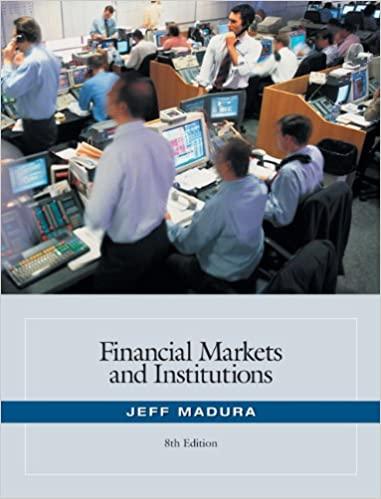Question
Question 2: (Test Question in 2011) Agland Ltd issues a 20-year coupon-bearing bond at par with a sinking fund provision requiring that 5 percent of
Question 2: (Test Question in 2011) Agland Ltd issues a 20-year coupon-bearing bond at par with a sinking fund provision requiring that 5 percent of the issue be retired each year. The par value of the bond is $1000. Foglund Ltd issues a 20-year coupon-bearing bond which is callable with call protection over only the first five years. The bond is issued at par, where the par value is $1000; and its coupon rate is 8 percent. Foglund Ltd and Bigbury Ltd are in the same industry and in the same country; and they have both issued their 20-year coupon-bearing bonds on the same day at par. However, the Bigbury bond is not callable while the Foglund bond is callable, as stated above. The three firms share a uniform level of business risk. Required: You are not required to compute exact numerical solutions. Your task is to describe, in sentences, the relevant ideas and characteristics.
(i) Assuming Agland Ltds bond trust deed allowed the company to call the 5 percent of bonds to be retired in any particular year, explain under what market conditions it would choose to make a call (as distinct from using the other method for retiring the bonds).
(ii) Agland Ltd does not necessarily have to make a call in order to retire the five percent of the bond issue each year. What is the alternative method Agland Ltd can employ, and under what market circumstances would it use this alternative method?
(iii) If we expect Foglund Ltd to make a call at the start of the sixth year, what interest rate would we compute to assess the attractiveness of this bond as an investment, and what information about the Foglund bond would we require to compute the value of this variable?
(iv) Explain the points of similarity and difference between the Bigbury Ltd and Foglund Ltd bond issues that we would expect to be evident in their YTMs and coupon rates of interest. Explain why these similarities and differences exist.
Step by Step Solution
There are 3 Steps involved in it
Step: 1

Get Instant Access to Expert-Tailored Solutions
See step-by-step solutions with expert insights and AI powered tools for academic success
Step: 2

Step: 3

Ace Your Homework with AI
Get the answers you need in no time with our AI-driven, step-by-step assistance
Get Started


